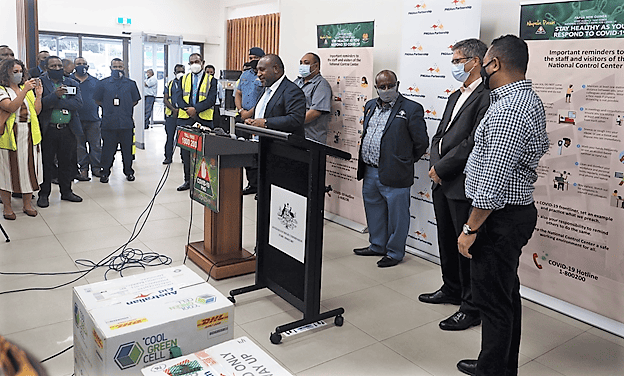Concerns for media independence and press freedom in Papua New Guinea (PNG) have been raised following the government’s announcement of a swift 12-day period for public review of the country’s draft National Media Development Policy, released on 05 February.
The International Federation of Journalists (IFJ) is concerned at the policy’s potential to undermine media rights and editorial independence in PNG and urges the government to ensure adequate consultation with the media industry before introducing such legislation.
On 05 February, the PNG Department of Information and Communications Technology (DICT), released a draft of a new National Media Development Policy, with the purpose of outlining ‘objectives and strategies for the use of media as a tool for development’. The policy also includes provisions for the ‘regulation’ of media outlets and journalists in the country, with an initial 12-day public consultation period announced from 05-17February
The policy was met with criticism from the Community Coalition Against Corruption (CCAC), a collective community network against corruption in PNG, who expressed concern at the insufficient period and breadth of consultation.
“The two weeks given for consultation is not sufficient to consider the national and societal impact of this Media Policy and whether it is actually required,” said the CCAC.
Following the CCAC statement, PNG Minister for Information and Communication Technology, Timothy Masiu, extended the deadline by one week from February 20.
“I reaffirm to the public that the Marape-Rosso Government is committed to ensuring that this draft policy will serve its ultimate purpose to ‘facilitate the use of media as a tool for development, such as the promotion of democracy, good governance, human rights, and social and economic development, said Masiu in a statement.
The proposed National Media Development Policy includes measures to avert unauthorised access to ‘sensitive information’ through the establishment of a Government Information Risk Management (GIRM) Division within the Department of ICT. The CCAC proposed investment in tertiary education, newsroom trainings on media ethics and protection from harassment as alternative tools to develop PNG’s quality of journalism.
The draft policy also re-established the PNG Media Council (MCPNG), which is currently a not-for-profit organisation, as an independent public body with legal mandates, functions and powers to support the ‘sustainable development’ of the media sector.
According to media academic Dr Susan Merrell, the current draft restricts the publishing of any anti-government material. “Instead of the media being the government’s watchdog, the government is trying to become the media’s watchdog,” she said.
On 17 February, the IFJ’s Australian affiliate, the Media, Entertainment and Arts Alliance (MEAA) echoed the concerns of the CCAC and the Media Council of PNG (MCPNG) stating, “MEAA supports the [MCPNG]’s concerns about the possible impact of the government’s draft National Media Development Policy on media freedom; regulation of access to information; and the restructuring of the national broadcaster, including proposed reduction in government funding.”
On 31 August 2022, the office of Prime Minister James Marape published a notice announcing that the Minister would no longer accept direct communication with journalists, threatening further restrictions on access to press conferences if the directive was not adhered to. The IFJ said: “The current provisions within the proposed National Media Development Policy pose significant concerns for press freedom in Papua New Guinea, with media regulations amounting to government censorship and restrictions on independent journalism.
While the extension of the deadline is a welcome first step, the IFJ calls on the PNG government to ensure comprehensive consultation with the media industry, including working journalists, outlets, press freedom organisations and other stakeholders, to ensure the draft policy does not impact media rights or journalistic independence.”
